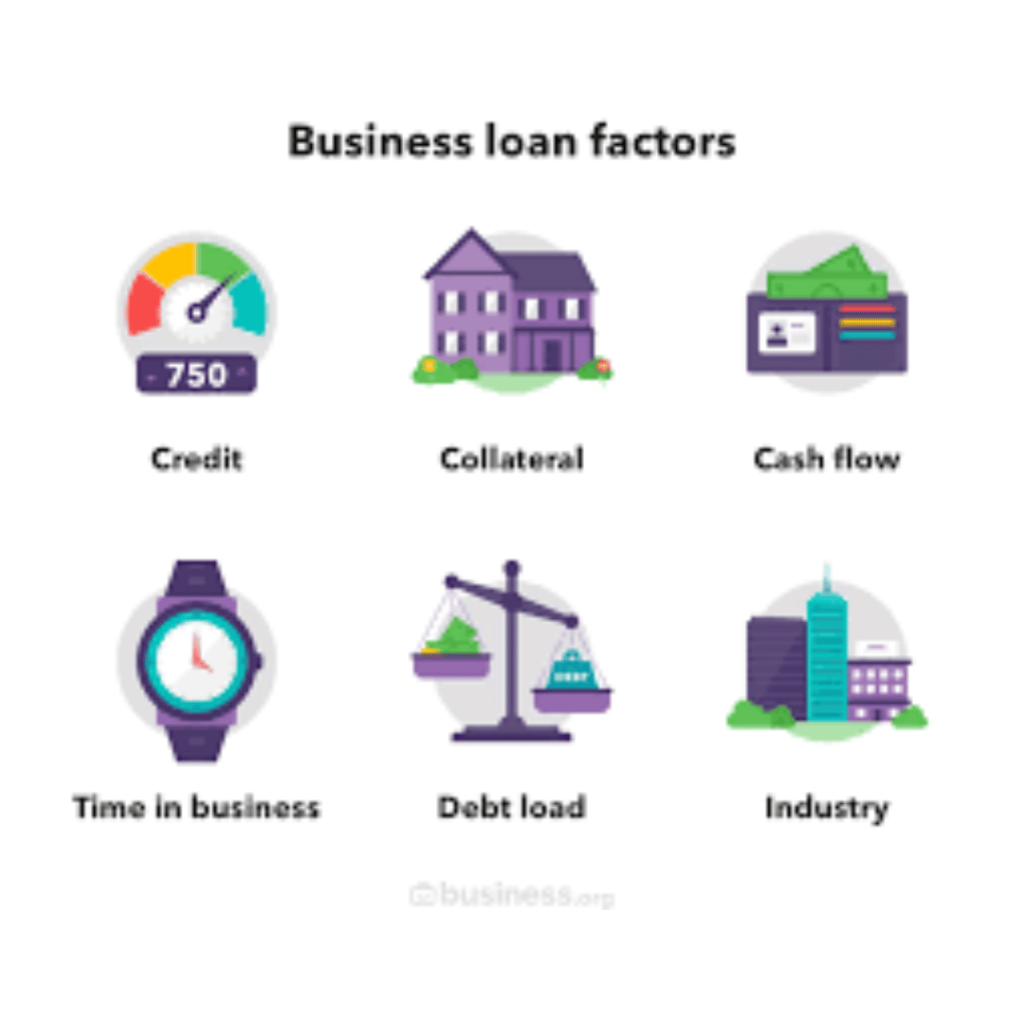Introduction to Business Loans
in this article we will learn Understanding business loan eligibility requirements Are you a business owner looking to expand your operations or launch a new venture? If so, you may find yourself in need of financial assistance lets do learn.
Business loans can be a lifeline for entrepreneurs seeking capital to fuel their ambitions. However, before diving into the business lending world, it’s crucial to understand the eligibility requirements that lenders look for.

What are the CFO’s priorities for transforming the finance department?
Whether you’re considering applying for an SBA loan or exploring alternative lending options, this guide will provide valuable insights and tips to help improve your chances of securing financing. So, let’s start demystifying the business loan eligibility world!
Types of Business Loans
Types of Business Loans
When it comes to funding your business, various types of loans are available. Each type has its criteria and benefits, so it’s essential to understand the options before deciding.
1. Term Loans: This is the most common type of business loan, where you borrow a lump sum amount and repay it over a fixed period with interest.
2. SBA Loans: These loans are guaranteed by the Small Business Administration (SBA) and offer competitive rates and longer repayment terms.

3. Equipment Financing: If you need to purchase or lease equipment for your business, this type of loan can help you cover the costs without putting strain on your cash flow.
4. Invoice Financing: Also known as accounts receivable financing, this option allows you to borrow against unpaid invoices to improve cash flow while waiting for customers to pay.
5. Line of Credit: Similar to a credit card, a line of credit provides access to funds up to a predetermined limit that you can use as needed.
6. Merchant Cash Advances: This option offers quick access to cash based on future sales revenue for businesses with consistent credit card sales.
7. Peer-to-Peer Lending: Individuals can lend money directly to small businesses at competitive interest rates through online platforms.
Understanding these different types of business loans will help you determine which one suits your needs best. Remember that each lender may have specific eligibility requirements for each loan type!
Eligibility Requirements for SBA Loans
Eligibility Requirements for SBA Loans
The Small Business Administration (SBA) offers loans to help entrepreneurs and small business owners fulfill their financial needs.
These loans are often sought after due to their favorable terms and lower interest rates than traditional bank loans. However, it’s essential to understand the eligibility requirements before applying for an SBA loan.

According to the SBA guidelines, your business must be classified as a small business. This typically means having a certain number of employees or meeting specific revenue thresholds. Additionally, it would help if you operated a for-profit enterprise in an eligible industry.
Another crucial requirement is demonstrating the ability to repay the loan. The SBA wants assurance that borrowers have sufficient cash flow and collateral to support repayment obligations.
They will assess your personal credit history, as well as that of any other owners with more than 20% ownership in the company.
Furthermore, applicants should have exhausted all other financing options before turning to an SBA loan. This means proving that you could not secure funding from conventional sources on reasonable terms.

What is the dark side of corporate finance theory?
It’s necessary for businesses seeking an SBA loan to provide detailed financial statements, including profit/loss statements and balance sheets from the previous three years.
Understanding these eligibility requirements can significantly improve your chances of obtaining an SBA loan for your small business venture!
Eligibility Requirements for Traditional Bank Loans
Eligibility Requirements for Traditional Bank Loans
Traditional bank loans have long been famous for businesses seeking financial assistance. However, securing these loans requires meeting specific eligibility criteria. Here are some of the standard requirements:
1. Good Credit Score: Banks typically prefer borrowers with a solid credit history and a good credit score. This demonstrates your ability to manage debt responsibly.
2. Strong Financials: Banks will closely examine your business’s financial statements, including profit and loss statements, balance sheets, and cash flow projections. They want to ensure you have stable revenues and can comfortably repay the loan.
3. Collateral: Many banks require collateral as security against the loan in case of default. This could be property, equipment, or other valuable assets the bank can seize if necessary.
4. Business Plan: A well-prepared business plan is crucial when applying for traditional bank loans. It should outline your company’s goals, strategies, market analysis, and future growth prospects.
5. Experience and Industry Knowledge: Demonstrating relevant experience in managing similar businesses or expertise in your industry can increase your chances of getting approved for a bank loan.

Remember that each bank may have additional requirements or preferences when considering loan applications.
Alternative Lending Options and Their Eligibility Criteria
Alternative Lending Options and Their Eligibility Criteria
When traditional bank loans aren’t a viable option for your business, don’t worry! There are alternative lending options available that can help you secure the funds you need.
These lenders often have more flexible eligibility criteria than traditional banks, making financing more accessible for small businesses.
One popular alternative lending option is online lenders. These platforms provide quick and convenient loan application processes, with many offering funding within days or even hours.
While eligibility requirements vary from lender to lender, common factors considered include credit history, revenue generation, and time in business.

Unlocking Empowering Financial Solutions: Exploring OneMain Financial Personal Loan Offerings
Another alternative lending option is peer-to-peer (P2P) lending platforms. P2P lenders connect borrowers directly with individual investors willing to lend money. Eligibility criteria typically include credit score, annual revenue, and debt-to-income ratio.
Invoice financing is another option if your business has outstanding customer invoices. This type of financing allows you to borrow against the value of those invoices, providing you with immediate cash flow while waiting for payment.

Additionally, merchant cash advances allow businesses to receive a lump sum upfront in exchange for a percentage of future sales or credit card transactions.
This form of financing may be suitable for companies with consistent daily sales but need more collateral or a better credit history.
These alternative lending options offer flexibility regarding eligibility criteria compared to traditional bank loans. It’s essential to research each lender’s specific requirements before applying so that you can find the best fit for your business needs.
Tips for Improving Business Loan Eligibility
Tips for Improving Business Loan Eligibility
When securing a business loan, meeting the eligibility requirements is crucial. Here are some tips to help improve your chances of getting approved:
1. Build a Strong Credit Profile: Lenders often consider your personal and business credit history when assessing loan applications. Ensure you have a good credit score by paying bills on time, reducing debt, and reducing credit utilization.
2. Prepare Detailed Financial Statements: Provide accurate financial documents such as income statements, balance sheets, and cash flow statements. Having clear and organized financial records shows lenders that you manage your finances responsibly.
3. Increase Your Collateral: If you’re applying for a secured loan, having valuable collateral can increase your chances of approval. Consider acquiring assets or improving existing ones that can be used as security for the loan.
4. Demonstrate Stable Cash Flow: Lenders want consistent revenue streams from your business to cover repayment obligations. Evidence of stable cash flow through sales projections or contracts with reliable customers strengthens your case.

Best Payday Loan Company in the USA
5. Reduce Debt-to-Income Ratio: Lowering your debt-to-income ratio shows lenders you have sufficient income to meet loan repayments comfortably. Pay off outstanding debts or renegotiate terms to lessen this ratio’s impact on the lender’s decision.
6. Develop a Solid Business Plan: A well-crafted business plan demonstrates professionalism and foresight in managing operations effectively while repaying loans promptly.
7.Seek Professional Assistance:
Working with accountants or financial advisors specializing in small businesses may provide valuable insights into optimizing eligibility factors specific to lenders’ preferences.

Remember, every lender has different criteria; tailoring these tips according to their requirements will significantly improve your prospects of obtaining financing for your business endeavors!
Conclusion
Understanding the eligibility requirements for business loans is crucial for entrepreneurs and small business owners looking to secure funding.
Whether you are considering SBA loans, traditional bank loans, or alternative lending options, knowing the specific criteria lenders look for is essential.
SBA loans offer attractive terms and rates but sometimes require a strong credit score, solid financials, and collateral.
On the other hand, traditional bank loans may have stricter requirements, such as a high credit score, established revenue history, and significant collateral.
If you don’t meet these requirements or need a faster funding solution with fewer restrictions, alternative lending options like online or microlenders can be viable alternatives. These lenders often focus more on your cash flow and business potential than your credit history.
To improve your chances of being approved for a business loan regardless of the type of lender you choose:

Discover Kia Finance: Flexible and Comprehensive Financing
1. Maintain good personal and business credit scores.
2. Keep detailed financial records, including income statements and balance sheets.
3. Have a well-thought-out business plan showcasing growth potential.
4. Build relationships with banks by opening accounts or obtaining smaller lines of credit first.
5. Consider working with an experienced loan advisor who can help navigate the application process.
Remember that every lender has its eligibility criteria, so it’s essential to research and compare multiple options before deciding.

Securing financing for your business can be challenging. Still, by understanding what lenders are looking for regarding eligibility requirements and strengthening your position as an applicant, you increase your chances of getting approved for the funds you need to succeed!
So take some time to assess which type of loan suits your needs best based on their eligibility criteria!




2 thoughts on “Understanding Business Loan Eligibility Requirements”